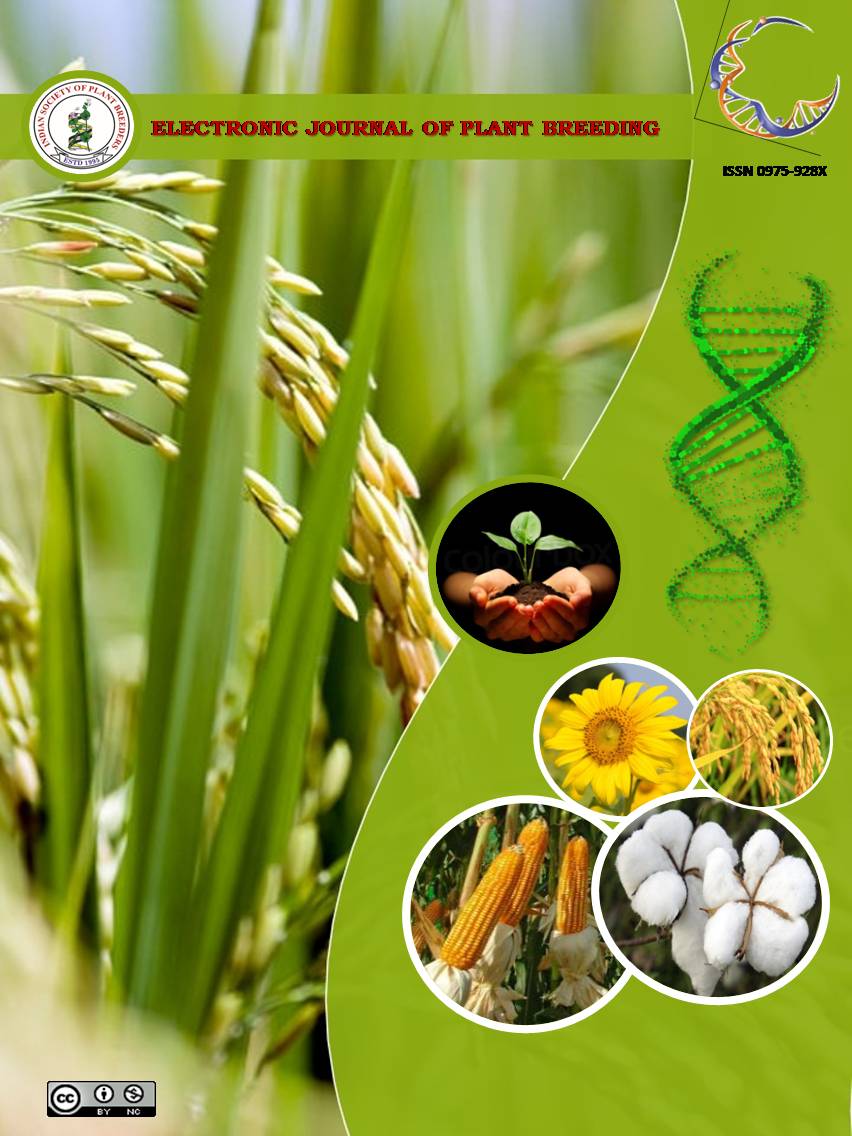Genetic diversity studies in rice (Oryza sativa L.)
Abstract
Thirty-seven elite germplasm lines being maintained at Regional Agricultural Research Station, Maruteru were evaluated for their genetic diversity with regard to grain yield, yield components and quality traits. The genotypes were classified into 18 clusters, based on Mahalanobis D2 statistics. Geographical and genetic diversity were observed to be unrelated, as genotypes from diverse geographical regions were placed in the same cluster, while, genotypes from the same centre were grouped into different clusters. Results on inter-cluster distances revealed maximum diversity between genotypes of clusters XVI and XVII. Intra-cluster distance was maximum for cluster XVIII, indicating the existence of variability within the cluster. A perusal of the results on cluster means revealed greater yield for cluster XII indicating the desirability of genotypes from the cluster for improvement of grain yield. Further milling percentage, days to 50 per cent flowering, number of grains panicle-1, 1000-seed weight and head rice recovery percentage, together accounted for 89.79 per cent of the total genetic divergence, indicating their importance as selection criteria in the choice of parents for hybridization programmes.

It is certified that:
- The corresponding author is fully responsible for any disputes arising due to the publication of his/her manuscript.
- The article has been seen by all the authors who are satisfied with its form and content.
- The sequence of names of authors in the by-line is as per their relative contribution to this experiment, giving due credit to all scientists who made notable contribution to it.
- All the authors fully understand that inclusion of any other co-authors or exclusion of any co-authors is not possible once the article has been submitted to the journal.
- The corresponding author takes full responsibility for this article.
- The address of the organization where the research was conducted is given.
- The article is exclusive for this journal, and the results reported here have not been sent (and will not be sent during its consideration by this journal) for publication in any other journal.
- Authors agree to abide by the objective comments of referees and do agree to modify the article into a short note as per the recommendation, for publication in the Electronic Journal of Plant Breeding.
- If published in Electronic Journal of Plant Breeding, the copyright of this article would vest with the Indian Society of Plant Breeders, who will have the right to enter into any agreement with any organization in India or abroad engaged in reprography, photocopying, storage and dissemination of information contained in it, and neither we nor our legal heirs will have any claims on royalty.


